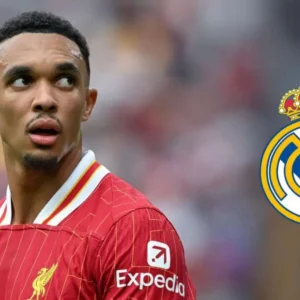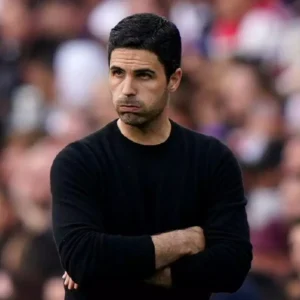
Carney Chukwuemeka, the 20-year-old English midfielder, has found himself at a crossroads in his burgeoning football career, particularly with his tenure at Chelsea FC under scrutiny. Despite his young age, Chukwuemeka has already carved out a reputation as a prodigious talent, yet his future at Stamford Bridge appears increasingly uncertain, as per insights from transfer guru Fabrizio Romano.
Chukwuemeka’s journey to Chelsea began with high hopes when he was signed from Aston Villa in August 2022. The transfer fee was pegged at £20 million, a significant investment reflecting the expectations placed on his young shoulders. However, what has followed has been a narrative of potential thwarted by injury and a crowded midfield roster at Chelsea.
The season under manager Enzo Maresca has not been kind to Chukwuemeka. Despite starting the pre-season with promise, featuring in the first two games, his game time has dwindled to a mere 13 minutes against Barrow in the Carabao Cup. This minimal involvement has not gone unnoticed, with Maresca himself suggesting that Chukwuemeka might be better served elsewhere, where he could secure regular first-team action.
The sentiment around Chukwuemeka’s situation was encapsulated when Fabrizio Romano reported on CaughtOffside that Chelsea are currently working on a “solution” for the young midfielder, indicating a strong likelihood of a departure in the January transfer window. This move is not just about Chukwuemeka’s career trajectory but also about Chelsea’s financial considerations, with his £100,000-a-week wages presenting an opportunity for salary cap relief.
Chelsea will sell the 20-year-old in January 2025
The interest in Chukwuemeka from other clubs, including AC Milan, Galatasaray, and even Manchester United, underscores his market value and the recognition of his talent. However, Chelsea’s stance on his future seems clear. The club’s decision not to loan him out but rather to seek a permanent transfer suggests a definitive end to his Chelsea chapter, possibly aligning with the club’s strategy to refresh their squad and foster youth development more effectively.
Chukwuemeka’s case at Chelsea highlights a broader issue within modern football: the challenge of integrating young talents into first teams that are already stacked with experienced, high-profile players. His situation echoes that of other young prospects who find themselves in a limbo of not being first-choice yet too valuable to let go without a fight.
The discussion around Chukwuemeka’s future also touches on Chelsea’s transfer strategy under their new ownership. There’s a noticeable shift towards a more calculated approach in squad management, where even talents like Chukwuemeka, if not fitting into immediate team plans, might be moved on to avoid stagnation. This approach could potentially benefit both the player, who might thrive with regular play elsewhere, and Chelsea, who could reinvest in areas of immediate need.
As the January transfer window looms, all eyes will be on Chukwuemeka. Will he find a new club where he can showcase his skills more frequently, or will Chelsea’s management find a way to integrate him more effectively? Whatever the outcome, Chukwuemeka’s move will be watched closely, not just as a story of a young player’s career but as a case study in modern football’s youth policy and squad management.






